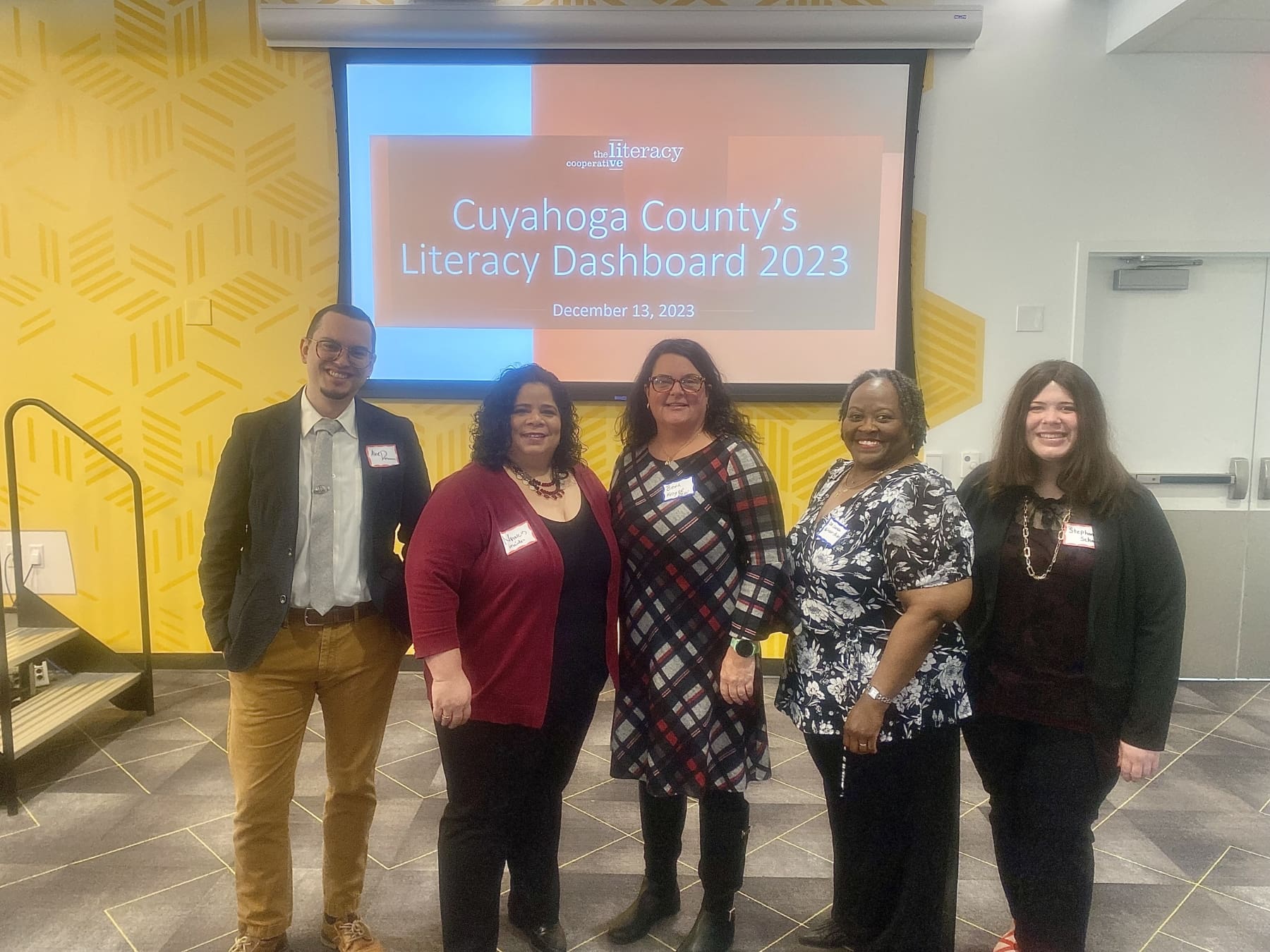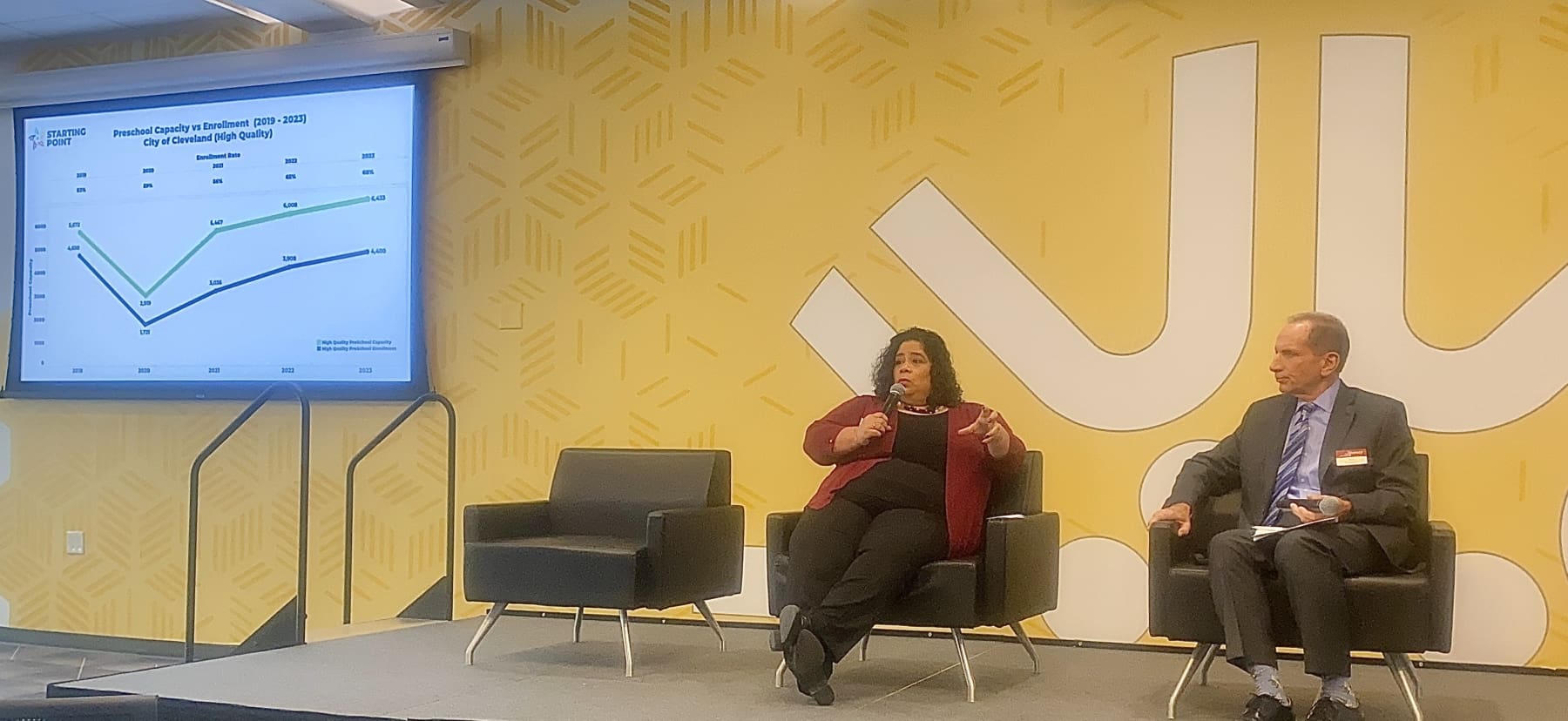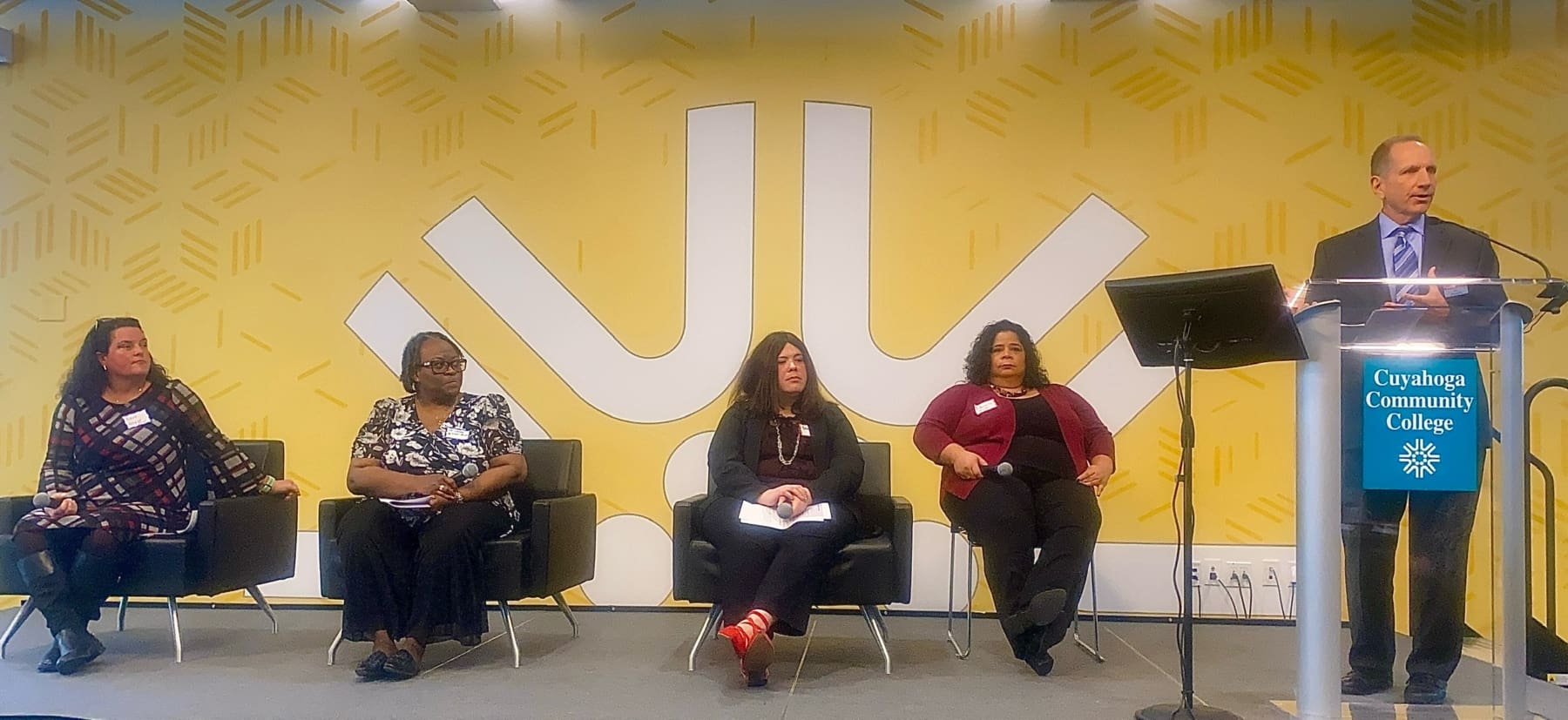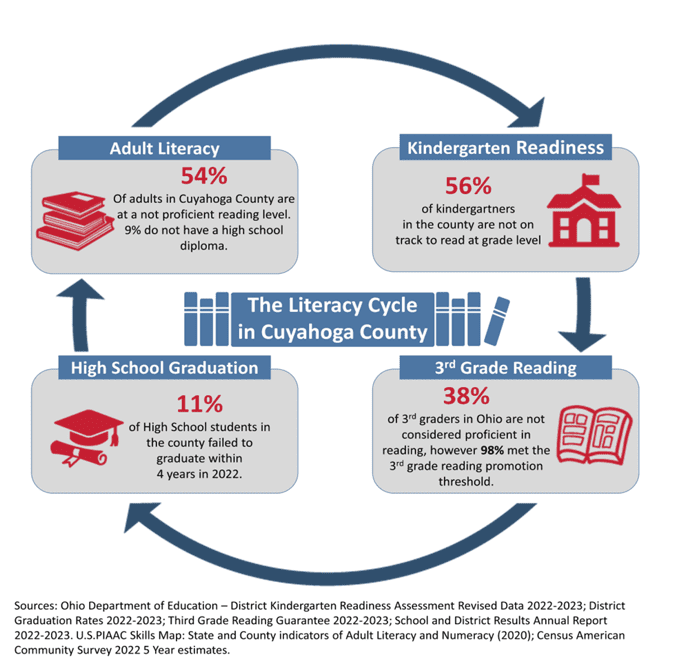2023 Update
On December 13, The Literacy Cooperative held its 5th annual Cuyahoga County Literacy Dashboard event. TLC President & CEO Bob Paponetti, Vice-President Laureen Atkins-Holliday, and a panel of experts reflected on the past five years of literacy data and provided insight into the recommended next steps and strategies.
Speakers include:
- Nancy Mendez, President and Chief Executive Officer of Starting Point
- Stephanie Schab, State Director, Aspire/AEFLA WIOA Title II, Ohio Department of Higher Education
- Dr. Sandra E. Mitchell-Phipps, State HSE Administrator/Program Administrator 2, Office of Career-Technical Education, Ohio Department of Education & Workforce
- Elizabeth Kreger, Assistant Director of Adult Options, Office of Career-Technical Education, Ohio Department of Education & Workforce
- Alex Dorman, Research Fellow, The Center for Community Solutions
Call to actions:
- Call your legislators and advocate for quality preschools and higher wages for preschool teachers.
- Reach out to Dr. Mitchell-Phipps about adding more HSE testing sites. Email: Sandra.Phipps@education.ohio.gov, or call: 614.466.4869
- Share the services available through Aspire and the Ohio Options program within your networks and organizations.





